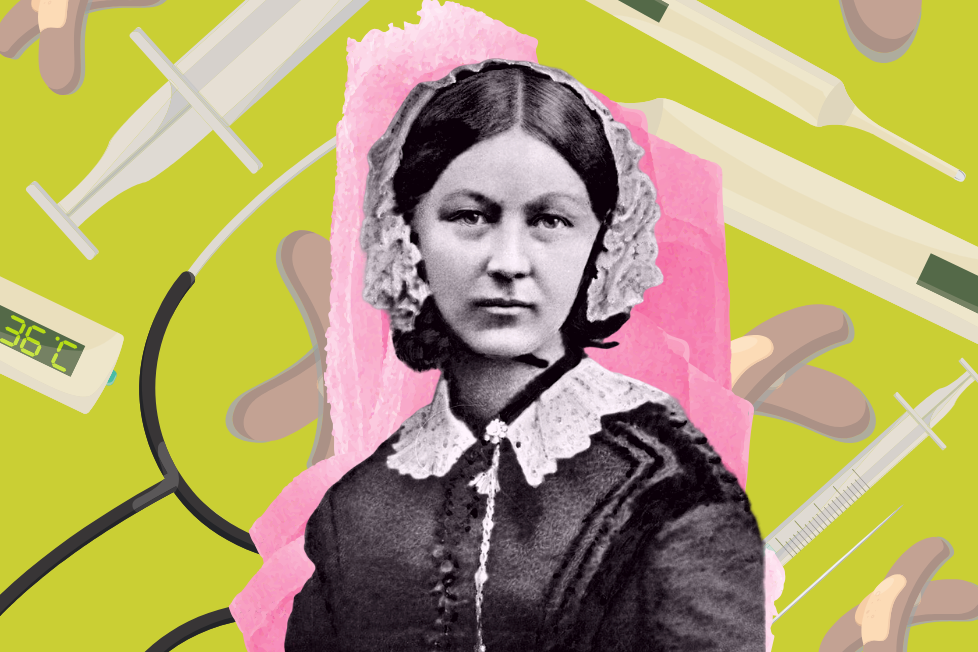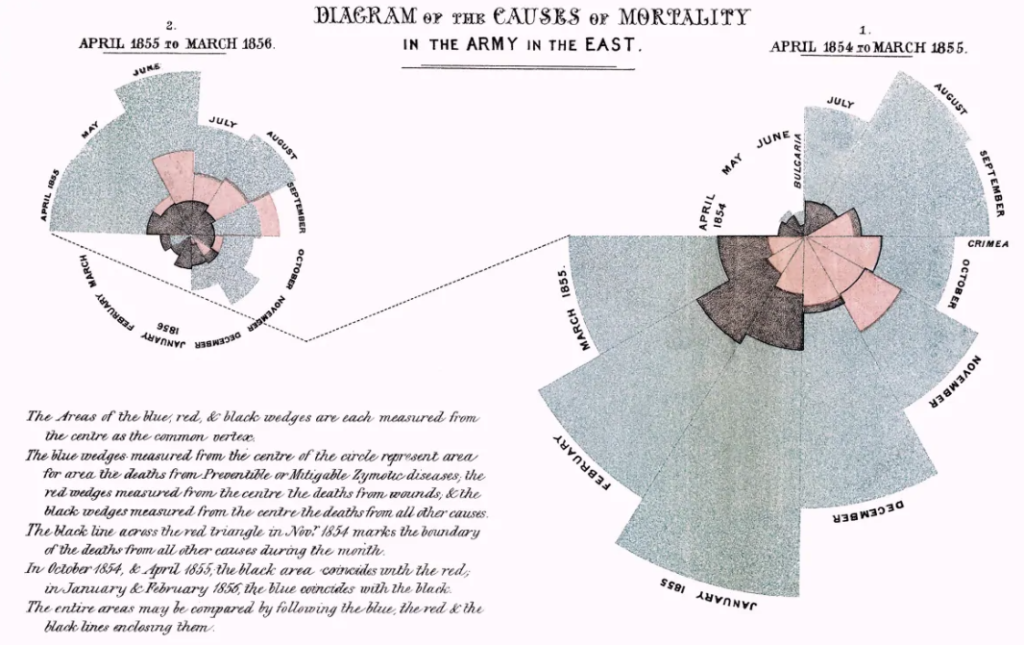Happy 200th birthday to nursing pioneer, Florence Nightingale

April 12, 2020, marks the 200th birthday of Florence Nightingale, a statistician, mathematician, and the founder of modern nursing. Impressive in any era, Nightingale’s accomplishments are even more remarkable considering the restrictions placed on women during the Victorian era.
As science historian Bernard Cohen wrote in 1984:
Nightingale’s achievements are all the more impressive when they are considered against the background of social restraints on women in Victorian England. Her father, William Edward Nightingale, was an extremely wealthy landowner, and the family moved in the highest circles of English society. In those days, women of Nightingale’s class did not attend universities and did not pursue professional careers; their purpose in life was to marry and bear children. Nightingale was fortunate. Her father believed women should be educated, and he personally taught her Italian, Latin, Greek, philosophy, history, and – most unusual of all for women of the time – writing and mathematics.
During the Crimean War, Nightingale was part of a team of nurses working at a British base hospital.
According to historic accounts, Nightingale worked tirelessly to care for the soldiers, carrying a lamp to move through dark hallways. It was there she earned the nickname “the Lady with the Lamp” and “the Angel of the Crimea.” According to biography.com, her work helped reduce the hospital’s death rate by two-thirds.
Before becoming a nurse, Nightingale studied and taught mathematics, and an article by the CBC credits her math background with helping to improve healthcare by using statistical analysis to determine soldiers were more likely to die from diseases picked up in the hospital than from wounds sustained on the battleground. This led to better sanitation practices and improved patient outcomes.

She also used statistics to dramatically reduce mortality rates in hospitals.
In 1860, she laid the groundwork for professional nursing — and professionalizing nursing jobs for women — through the establishment of the first secular nursing school in the world at St. Thomas’ Hospital in London, an institution which is now part of King’s College London.
From 1857 until her death on August 13, 1920, Nightingale suffered from a chronic illness likely picked up during the Crimean War. It is now believed to have been brucellosis, a bacterial infection linked to fatigue, fever, and pain.
Even while bedridden, Nightingale continued her work, publishing books, reports, and pamphlets emphasizing the importance of sanitation reform in health care institutions and working to further research around nursing best practices.
In the U.S., nurses take the “Nightingale Pledge“, a modified version of the Hippocratic Oath, and May 12 is International Nurses Day, a day to commemorate Nightingale and the countless contributions nurses make year-round.
Today, nurses can be awarded the Florence Nightingale Medal, a distinction established in 1912 by the International Committee of the Red Cross.
It is the highest international award a nurse or nursing aid can receive and is granted to individuals who exhibit “exceptional courage and devotion to the wounded, sick or disabled or to civilian victims of a conflict or disaster” or “exemplary services or a creative and pioneering spirit in the areas of public health or nursing education.
